Chapter 7 What? We are also Made from Nutrients?
第7章 什么?我们也是营养素做的?
dì qī zhāng – shénme? Wǒmen yěshì yíngyǎngsù zuò de?
1 What are nutrients?
什么是营养素?
shén me shì yíng yǎng sù?
The substances necessary to sustain life are nutrients.
维持生命所必须的物质就是营养素。
wéi chí shēng mìng suǒ bì xū de wù zhì jiù shì yíng yǎng sù.
Whatever you eat to become a part of your body are nutrients.
凡是吃进去能变成你身体一部分的就是营养素。
fán shì chī jìn qù néng biàn chéng nǐ shēn tǐ yī bù fèn de jiù shì yíng yǎng sù.

Nutrients include seven categories: water, protein, carbohydrates, fat, vitamin, mineral and fiber.
营养素包括七大类:水、蛋白质、碳水化合物、脂肪、维生素、矿物质和纤维素。
yíng yǎng sù bāo kuò qī dà lèi: shuǐ, dàn bái zhì, tàn shuǐ huà hé wù, zhī fáng, wéi shēng sù, kuàng wù zhì hé xiān wéi sù.
2 The difference between nutrients and drugs
营养素和药物的区别
yíng yǎng sù huò yào wù de qū bié
Without any of the seven nutrients, we cannot survive, because nutrients are essential for life.
缺乏七大营养素的任何一种,我们都无法生存,因为营养素是维持生命所必须的物质。
quē fá qī dà yíng yǎng sù de rèn hé yī zhǒng, wǒ men dōu wú fǎ shēng cún, yīn wèi yíng yǎng sù shì wéi chí shēng mìng suǒ bì xū de wù zhì.
For example, we have to take vitamin C from childhood until now. If vitamin C is deficient, we will get scurvy. If we do not get vitamin C for several weeks, it will be life-threatening to us. So vitamin C is a nutrient.
例如,我们从小到大都必须摄取维生素C,如果维生素C缺乏就会得坏血病,连续几个星期得不到维生素C就会有生命危险。所以维生素C是营养素。
lì rú, wǒ men cóng xiǎo dào dà dū bì xū shè qǔ wéi shēng sù c, rú guǒ wéi shēng sù c quē fá jiù huì dé huài xuè bìng, lián xù jǐ gè xīng qī dé bú dào wéi shēng sù c jiù huì yǒu shēng mìng wēi xiǎn. suǒ yǐ wéi shēng sù c shì yíng yǎng sù.
What is medicine? For the purpose of curing various diseases, those stuff that leave or me’tabolize on the surface of the body or in the body are drugs.
什么是药物?以治疗各种疾病为目的,在身体表面或体内发挥完作用就离开或代谢掉的那些东西就是药物。
shén me shì yào wù? yǐ zhì liáo gè zhǒng jí bìng wèi mù dì, zài shēn tǐ biǎo miàn huò tǐ nèi fā huī wán zuò yòng jiù lí kāi huò dài xiè diào de nèi xiē dōng xī jiù shì yào wù.
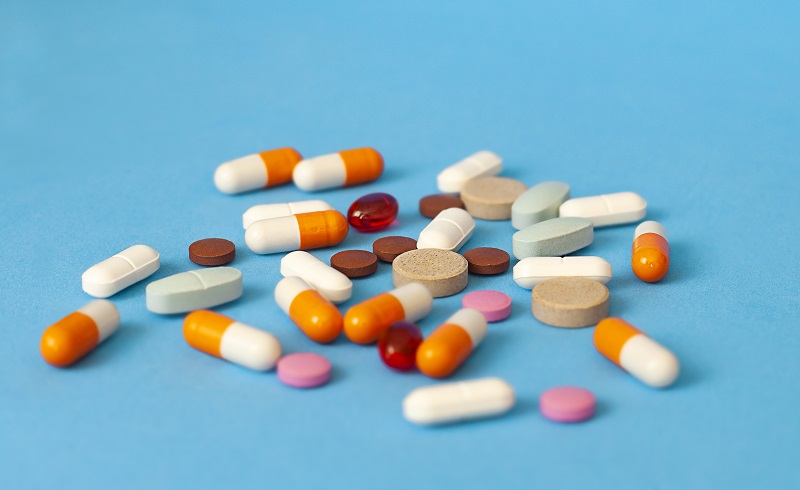
Medicine is not a substance necessary to sustain life, not a nutrient.
药物不是维持生命所必须的物质,不是营养素。
yào wù bú shì wéi chí shēng mìng suǒ bì xū de wù zhì, bú shì yíng yǎng sù.
We may not take aspirin at all in our lives, because aspirin is a medicine, not necessary for the human body.
我们可以一辈子不吃阿司匹林,因为阿司匹林是一种药,不是人体必须的。
wǒ men kě yǐ yī bèi zi bù chī ā sī pǐ lín, yīn wèi ā sī pǐ lín shì yī zhǒng yào, bú shì rén tǐ bì xū de.
It’s just that when the body is infected by bacteria and the body’s immunity cannot defeat the bacteria, we use aspirin to defeat the bacteria as an external force.
只不过是当身体受细菌感染,身体的免疫力又无法战胜细菌时,需要借助阿司匹林这个外力把细菌打败。
zhǐ bù guò shì dāng shēn tǐ shòu xì jùn gǎn rǎn, shēn tǐ de miǎn yì lì yòu wú fǎ zhàn shèng xì jùn shí, xū yào jiè zhù ā sī pǐ lín zhè gè wài lì bǎ xì jùn dǎ bài.
3 The difference between nutrients and functional foods
营养素和功能性食品的区别
yíng yǎng sù hé gōng néng xìng shí pǐn de qū bié
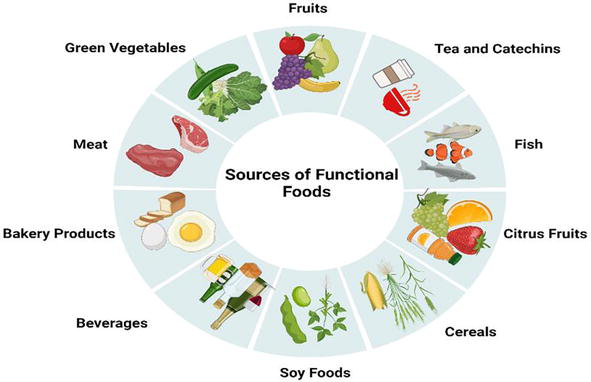
Without any of the seven nutrients, we cannot survive, because nutrients are essential for life.
缺乏七大营养素的任何一种,我们都无法生存,因为营养素是维持生命所必须的物质。
quē fá qī dà yíng yǎng sù de rèn hé yī zhǒng, wǒ men dōu wú fǎ shēng cún, yīn wèi yíng yǎng sù shì wéi chí shēng mìng suǒ bì xū de wù zhì.
We can never eat functional foods, such as allicin, ginseng, Ganoderma lucidum, maca, bird’s nest, etc., because functional foods are not essential for life support, not nutrients.
我们可以一辈子不吃功能性食品,例如大蒜素、人参、灵芝、玛咖、燕窝等,因为功能性食品不是维持生命所必须的物质,不是营养素。
wǒ men kě yǐ yī bèi zi bù chī gōng néng xìng shí pǐn, lì rú dà suàn sù, rén shēn, líng zhī, mǎ kā, yàn wō děng, yīn wèi gōng néng xìng shí pǐn bú shì wéi chí shēng mìng suǒ bì xū de wù zhì, bú shì yíng yǎng sù.
If we lack nutrients and eat functional foods alone, it may have a temporary effect, but it will not fundamentally change the condition of the body.
如果我们营养素缺乏,单独吃功能性食品,可能会起到暂时的效果,但无法从根本上改变身体的状况。
rú guǒ wǒ men yíng yǎng sù quē fá, dān dú chī gōng néng xìng shí pǐn, kě néng huì qǐ dào zàn shí de xiào guǒ, dàn wú fǎ cóng gēn běn shàng gǎi biàn shēn tǐ de zhuàng kuàng.
A weak person can quickly regain energy by using ginseng, but if the nutrients are not supplemented in time, when the function of ginseng is lost, his health will become worse.
一个体弱的人使用人参可以迅速恢复精力,但如果得不到营养素的及时补充,当人参的作用失去后,身体的健康状况会变得更差。
yí gè tǐ ruò de rén shǐ yòng rén shēn kě yǐ xùn sù huī fù jīng lì, dàn rú guǒ dé bú dào yíng yǎng sù de jí shí bǔ chōng, dāng rén shēn de zuò yòng shī qù hòu, shēn tǐ de jiàn kāng zhuàng kuàng huì biàn dé gèng chà.
4 Water 水 shuǐ
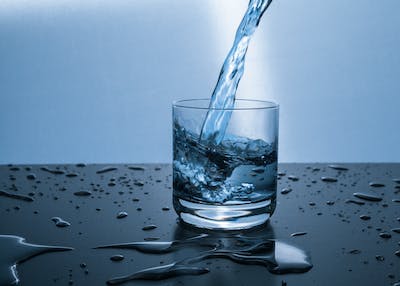
When I was training medical English for Southwest Hospital, a doctor had a kidney stone for treatment. She had been drinking tap water, but the kidney stone recurred. After drinking mineral water later, the kidney stone never recurred.
我给西南医院培训医学英语时,有一位医生曾经患肾结石接受了治疗,她一直饮用自来水,结果肾结石又复发了。后来改为饮用矿泉水后,肾结石再也没有复发。
wǒ gěi xī nán yī yuàn péi xùn yī xué yīng yǔ shí, yǒu yī wèi yī shēng céng jīng huàn shèn jié shí jiē shòu le zhì liáo, tā yì zhí yǐn yòng zì lái shuǐ, jiē guǒ shèn jié shí yòu fù fā le. hòu lái gǎi wéi yǐn yòng kuàng quán shuǐ hòu, shèn jié shí zài yě méi yǒu fù fā.
The quality of water is very important, because water is the source of life, and water accounts for 55-65% of human body weight.
水的质量非常重要,因为水是生命之源,水占人体体重的55-65%。
shuǐ de zhì liàng fēi cháng zhòng yào, yīn wèi shuǐ shì shēng mìng zhī yuán, shuǐ zhàn rén tǐ tǐ zhòng de bǎi fēn zhī wǔ shí wǔ zhì liù shí wǔ.
Water is an indispensable substance for all body activities. Without water, the body’s biochemical reactions cannot proceed, and life will stop.
水是身体一切活动必不可少的物质,没有水,身体的生化反应无法进行,生命也将停止。
shuǐ shì shēn tǐ yī qiè huó dòng bì bù kě shǎo de wù zhì, méi yǒu shuǐ, shēn tǐ de shēng huà fǎn yìng wú fǎ jìn xíng, shēng mìng yě jiāng tíng zhǐ.
The main functions of water: transport nutrients, excrete waste, regulate body temperature and maintain the body’s pH.
水的主要作用:输送营养、排泄废物、调节体温以及维持人体的酸碱度。
shuǐ de zhǔ yào zuò yòng: shū sòng yíng yǎng, pái xiè fèi wù, tiáo jié tǐ wēn yǐ jí wéi chí rén tǐ de suān jiǎn dù.
5 Protein 蛋白质 dàn bái zhì
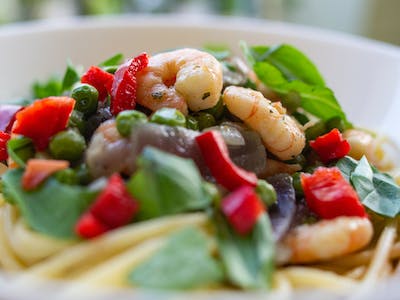
Protein accounts for about 20% of the human body. Protein is the most important material for human body structure.
蛋白质占人体20%左右。蛋白质是人体构造的最主要材料。
dàn bái zhì zhàn rén tǐ 0 % zuǒ yòu, dàn bái zhì shì rén tǐ gòu zào de zuì zhǔ yào cái liào.
The human body’s cells, blood, muscles, tissues and organs all rely on protein composition.
人体的细胞、血液、肌肉、组织器官等,全都依赖蛋白质构成。
rén tǐ de xì bāo, xuè yè, jī ròu, zǔ zhī qì guān děng, quán dōu yī lài dàn bái zhì gòu chéng.
Except for the absence of protein in urine and bile, the human body is mainly composed of protein.
人体除了尿液和胆汁内没有蛋白质外,其他各处主要均由蛋白质构成。
rén tǐ chú le niào yè hé dǎn zhī nèi méi yǒu dàn bái zhì wài, qí tā gè chù zhǔ yào jūn yóu dàn bái zhì gòu chéng.
Living organisms cannot survive without protein. Protein is the support of life.
生物体缺少了蛋白质就无法生存。蛋白质是生命支架。
shēng wù tǐ quē shǎo le dàn bái zhì jiù wú fǎ shēng cún. dàn bái zhì shì shēng mìng zhī jià.
6 Carbohydrate
碳水化合物
tàn shuǐ huà hé wù
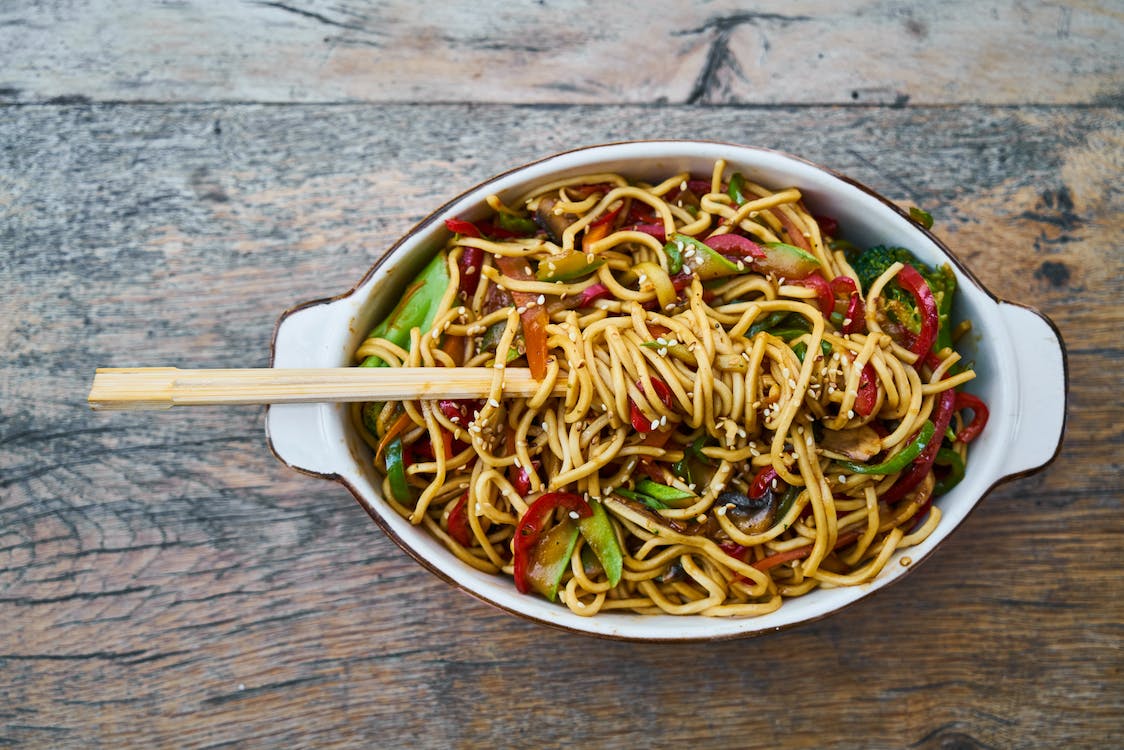
Carbohydrate, also known as “blood sugar”, is the main source of energy for the human body. Carbohydrate mainly comes from grains, vegetables and fruits.
碳水化合物又称“糖”,是人体主要的能量来源。碳水化合物主要来自五谷类和蔬菜水果中。
tàn shuǐ huà hé wù yòu chēng “ táng ”, shì rén tǐ zhǔ yào de néng liàng lái yuán. tàn shuǐ huà hé wù zhǔ yào lái zì wǔ gǔ lèi hé shū cài shuǐ guǒ zhōng.
Where do the carbohydrates that were eaten every day go? There are three main places to go.
每天吃进去的碳水化合物都跑到哪儿去了?主要有三个去处。
měi tiān chī jìn qù de tàn shuǐ huà hé wù dōu pǎo dào nǎ er qù le? zhǔ yào yǒu sān gè qù chù.
6.1 It is consumed as energy
作为能量消耗掉了
zuò wéi néng liàng xiāo hào diào le
Energy is required for various biochemical reaction in the body, energy is required for exercise, metabolism and thinking.
体内各种生化反应和代谢需要能量,运动需要能量,思考需要能量。
tǐ nèi gè zhǒng shēng huà fǎn yìng hé dài xiè xū yào néng liàng, yùn dòng xū yào néng liàng, sī kǎo xū yào néng liàng.
This is why some people lose weight and do not eat carbohydrates, their legs become soft, and even suffer from hair loss.
这就是为什么有些人减肥不吃碳水化合物腿发软的原因,甚至掉头发。
zhè jiù shì wèi shén me yǒu xiē rén jiǎn féi bù chī tàn shuǐ huà hé wù tuǐ fā ruǎn de yuán yīn, shèn zhì diào tóu fà.
If your blood sugar is low, you will feel hungry.
如果血糖偏低,你就会有饥饿感。
rú guǒ xuè táng piān dī, nǐ jiù huì yǒu jī è gǎn.
6.2 A small amount is stored in the liver and muscles
少量储存在肝脏内和肌肉里
shǎo liàng chú cún zài gān zàng nèi hé jī ròu lǐ
What is stored in the liver is called liver glycogen, and what is stored in the muscles is called muscle glycogen.
储存在肝脏内的叫肝糖原,储存在肌肉里的叫肌糖原。
chú cún zài gān zàng nèi de jiào gān táng yuán, chú cún zài jī ròu lǐ de jiào jī táng yuán.
When the human body needs explosive energy, such as weightlifting, boxing, etc., glycogen will be converted and used first.
当人体需要爆发性能量时,如举重、拳击等,糖原就会被首先转换利用。
dāng rén tǐ xū yào bào fā xìng néng liàng shí, rú jǔ zhòng, quán jī děng, táng yuán jiù huì bèi shǒu xiān zhuǎn huàn lǐ yòng.
6.3 Excess carbohydrates become fat and are stored in the body
多余的碳水化合物变成脂肪储存在体内
duō yú de tàn shuǐ huà hé wù biàn chéng zhī fáng chú cún zài tǐ nèi
As the saying goes: Have breakfast like an emperor, have lunch like a minister, and have dinner like a beggar. This makes sense, because during the day we consume a lot of energy for work, exercise, and brain use, while at night we consume a lot less energy when we rest and sleep.
俗话说:早餐吃得像皇帝,午餐吃得像大臣,晚餐吃得像乞丐。这是有一定道理的,因为白天我们工作、运动、用脑都要消耗大量的能量,而晚上休息睡觉时消耗的能量就少很多了。
sú huà shuō: zǎo cān chī dé xiàng huáng dì, wǔ cān chī dé xiàng dà chén, wǎn cān chī dé xiàng qǐ gài. zhè shì yǒu yí dìng dào lǐ de, yīn wèi bái tiān wǒ men gōng zuò, yùn dòng, yòng nǎo dōu yào xiāo hào dà liàng de néng liàng, ér wǎn shàng xiū xī shuì jiào shí xiāo hào de néng liàng jiù shǎo hěn duō le.
If a person often has bad eating habits, turn it upside down, overeating at dinner and intaking too much energy to consume, it will turn into fat. Where is the fat stored? The body is very smart. After running around, it finds that the abdomen has a large space under the skin, so it is stored under the skin of the abdomen. This is the reason for the formation of the “Beer Belly”.
如果一个人经常饮食习惯不好,颠倒过来,晚餐暴饮暴食、大鱼大肉,摄取太多的能量不能消耗掉,就转变成脂肪了。脂肪储存在哪里呢?身体很聪明,跑了一圈发现腹部皮下空间广阔,于是就储存在肚子的皮下了,这就是“将军肚”形成的原因。
rú guǒ yí gè rén jīng cháng yǐn shí xí guàn bù hǎo, diān dǎo guò lái, wǎn cān bào yǐn bào shí, dà yú dà ròu, shè qǔ tài duō de néng liàng bù néng xiāo hào diào, jiù zhuǎn biàn chéng zhī fáng le. zhī fáng chú cún zài nǎ lǐ ne? shēn tǐ hěn cōng míng, pǎo le yī quān fā xiàn fù bù pí xià kōng jiān guǎng kuò, yú shì jiù chú cún zài dǔ zi de pí xià le, zhè jiù shì “ jiāng jūn dù ” xíng chéng de yuán yīn.
As the saying goes: Long belts leads to short life-span. People with “beer belly” should pay attention to eating habits, weight control, and actively contribute to their health.
常言道:裤带长、寿命短。有“将军肚”的人应该注意饮食习惯、控制体重,积极主动地为自己的健康加分。
cháng yán dào: kù dài cháng, shòu mìng duǎn. yǒu “ jiāng jūn dù ” de rén yīng gāi zhù yì yǐn shí xí guàn, kòng zhì tǐ zhòng, jī jí zhǔ dòng dì wèi zì jǐ de jiàn kāng jiā fēn.
7 Fat 脂肪 zhī fáng
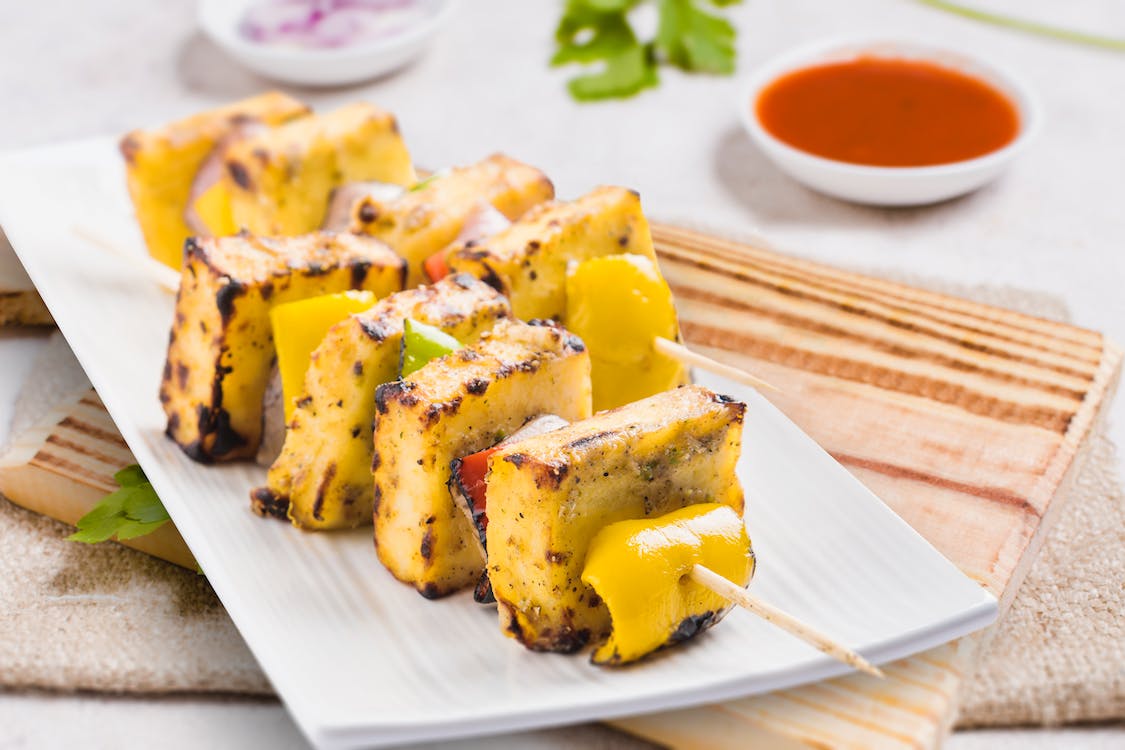
Fat accounts for 15-25% of the human body, and fat can provide durable energy.
脂肪占人体的15-25%,脂肪可以提供持久性的能量。
zhī fáng zhàn rén tǐ de bǎi fēn zhī shí wǔ zhì èr shí wǔ, zhī fáng kě yǐ tí gōng chí jiǔ xìng de néng liàng.
The main component of fat is triglycerides.
脂肪的主要成分是甘油三酯。
zhī fáng de zhǔ yào chéng fèn shì gān yóu sān zhǐ.
What is the relationship between fat and cholesterol?
脂肪和胆固醇是什么关系?
zhī fáng hé dǎn gù chún shì shén me guān xì?
Fat (Triglycerides) and cholesterol are different types of lipids that circulate in your blood: Fat (Triglycerides) store unused calories and provide your body with energy. Cholesterol is used to build cells and certain hormones.
脂肪(甘油三酯)和胆固醇是在血液中循环的不同类型的脂类:脂肪(甘油三酯)储存未使用的卡路里并为身体提供能量。胆固醇用于合成细胞和某些激素。
zhī fáng (gān yóu sān zhǐ) hé dǎn gù chún shì zài xuè yè zhōng xún huán de bù tóng lèi xíng de zhī lèi: zhī fáng (gān yóu sān zhǐ) chú cún wèi shǐ yòng de kǎ lù lǐ bìng wèi shēn tǐ tí gōng néng liàng. dǎn gù chún yòng yú hé chéng xì bāo hé mǒu xiē jī sù.
7.1 Total Cholesterol score = HDL + LDL + 20% of triglyceride level
总胆固醇评分 = 高密度脂蛋白 + 低密度脂蛋白 + 20% 的甘油三酯
zǒng dǎn gù chún píng fēn = gāo mì dù zhī dàn bái + dī mì dù zhī dàn bái + 20 % de gān yóu sān zhǐ
7.2 Low-density-lipoprotein (LDL) = “bad” cholesterol
低密度脂蛋白 (LDL) = “坏”胆固醇
dī mì dù zhī dàn bái = “ huài ” dǎn gù chún
7.3 High-density-lipoprotein (HDL) = “good” cholesterol
高密度脂蛋白 (HDL) = “好”胆固醇
gāo mì dù zhī dàn bái = “ hǎo ” dǎn gù chún
7.4 Triglyceride is the most common type of fat in the body. Normal triglyceride levels vary by age and gender. A high triglyceride level combined with low HDL or high LDL is associated with atherosclerosis, the buildup of fatty deposits in artery walls that increases the risk for heart attack and stroke.
甘油三酯是体内最常见的脂肪类型。正常的甘油三酯水平因年龄和性别而异。高甘油三酯水平结合低水平的HDL或高水平的LDL与动脉粥样硬化有关,动脉壁中脂肪沉积物的积聚会增加心脏病发作和中风的风险。
gān yóu sān zhǐ shì tǐ nèi zuì cháng jiàn de zhī fáng lèi xíng. zhèng cháng de gān yóu sān zhǐ shuǐ píng yīn nián líng hé xìng bié ér yì. gāo gān yóu sān zhǐ shuǐ píng jié hé dī shuǐ píng de h d l huò gāo shuǐ píng de l d l yǔ dòng mài zhōu yàng yìng huà yǒu guān, dòng mài bì zhōng zhī fáng chén jī wù de jī jù huì zēng jiā xīn zàng bìng fā zuò hé zhòng fēng de fēng xiǎn.
8 Vitamins 维生素 wéi shēng sù
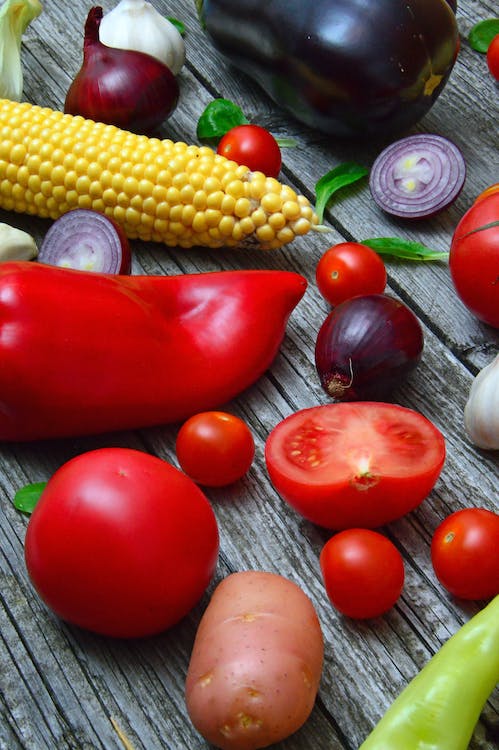
Although vitamins account for a very small proportion in the human body, they play an important role.
维生素虽然在人体所占比例非常小,但扮演着重要的角色。
wéi shēng sù suī rán zài rén tǐ suǒ zhàn bǐ lì fēi cháng xiǎo, dàn bàn yǎn zhuó zhòng yào de jué sè.
Like the brake pads of a car, although it is a small component, it plays a key role in the safe driving.
如同汽车的刹车片,虽然很小的一个零部件,但对汽车的安全行驶起着关键作用。
rú tóng qì chē de shā chē piàn, suī rán hěn xiǎo de yí gè líng bù jiàn, dàn duì qì chē de ān quán xíng shǐ qǐ zhuó guān jiàn zuò yòng.
When the car is running, the brake pads are worn out, and the brakes fail. Thinking about the consequences is very scary.
汽车行驶中刹车片摩没了,刹车失灵了,想想后果都很害怕。
qì chē xíng shǐ zhōng shā chē piàn mó méi le, shā chē shī líng le, xiǎng xiǎng hòu guǒ dōu hěn hài pà.
In the same way, without vitamins in the body, people will become sick and even life-threatening.
同理,身体里没有维生素了,人就会生病甚至危及生命。
tóng lǐ, shēn tǐ lǐ méi yǒu wéi shēng sù le, rén jiù huì shēng bìng shèn zhì wēi jí shēng mìng.
Vitamins are divided into two categories: fat-soluble and water-soluble.
维生素分为脂溶性和水溶性两大类。
wéi shēng sù fēn wéi zhī róng xìng hé shuǐ róng xìng liǎng dà lèi.
Fat-soluble vitamins include A, D, E, K, etc., which are stored in human fat tissue, and the symptoms of deficiency appear slowly.
脂溶性维生素有A、D、E、K等,储存在人体脂肪组织中,缺乏症状出现缓慢。
zhī róng xìng wéi shēng sù yǒu a, d, e, k děng, chú cún zài rén tǐ zhī fáng zǔ zhī zhōng, quē fá zhēng zhuàng chū xiàn huǎn màn.
Water-soluble vitamins include B and C. The characteristics of water-soluble vitamins: After meeting the needs of the body, the excess is removed along the water, and very little is stored in the body, so water-soluble vitamins should be supplemented frequently.
水溶性维生素有B族和C等。水溶性维生素的特点:溶于水,满足身体所需后,多余的随身体水分排出,储存在体内的很少,所以水溶性维生素要经常补充。
shuǐ róng xìng wéi shēng sù yǒu b zú hé c děng. shuǐ róng xìng wéi shēng sù de tè diǎn: róng yú shuǐ, mǎn zú shēn tǐ suǒ xū hòu, duō yú de suí shēn tǐ shuǐ fèn pái chū, chú cún zài tǐ nèi de hěn shǎo, suǒ yǐ shuǐ róng xìng wéi shēng sù yào jīng cháng bǔ chōng.
9 Minerals 矿物质 kuàng wù zhì
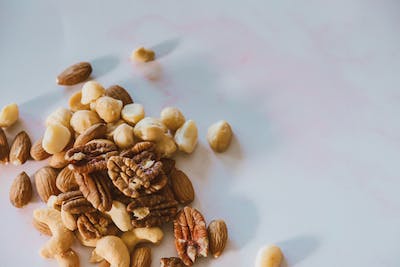
Minerals make up about 5% of the human body. Minerals are divided into abundant minerals and trace minerals.
矿物质占人体的5%左右。矿物质分为丰量矿物质和微量矿物质。
kuàng wù zhì zhàn rén tǐ de 5% zuǒ yòu. kuàng wù zhì fēn wéi fēng liàng kuàng wù zhì hé wēi liàng kuàng wù zhì.
Abundant minerals: The body needs to absorb more than 100 mg of minerals per day. Such as calcium and magnesium.
丰量矿物质:凡身体每天需要吸收100毫克以上的矿物质。如钙、镁等。
fēng liàng kuàng wù zhì: fán shēn tǐ měi tiān xū yào xī shōu 0 0 háo kè yǐ shàng de kuàng wù zhì. rú gài, měi děng.
Trace Minerals: The body needs to absorb less than 100 mg of minerals per day. Such as copper, iron, selenium, potassium, etc.
微量矿物质:凡身体每天需要吸收100毫克以下的矿物质。如铜、铁、硒、钾等。
wēi liàng kuàng wù zhì: fán shēn tǐ měi tiān xū yào xī shōu 0 0 háo kè yǐ xià de kuàng wù zhì. rú tóng, tiě, xī, jiǎ děng.
The main function of minerals is to regulate the physiological functions of the human body.
矿物质的主要功能是调节人体的生理机能。
kuàng wù zhì dì zhǔ yào gōng néng shì tiáo jié rén tǐ de shēng lǐ jī néng.
10 Cellulose 纤维素 xiān wéi sù
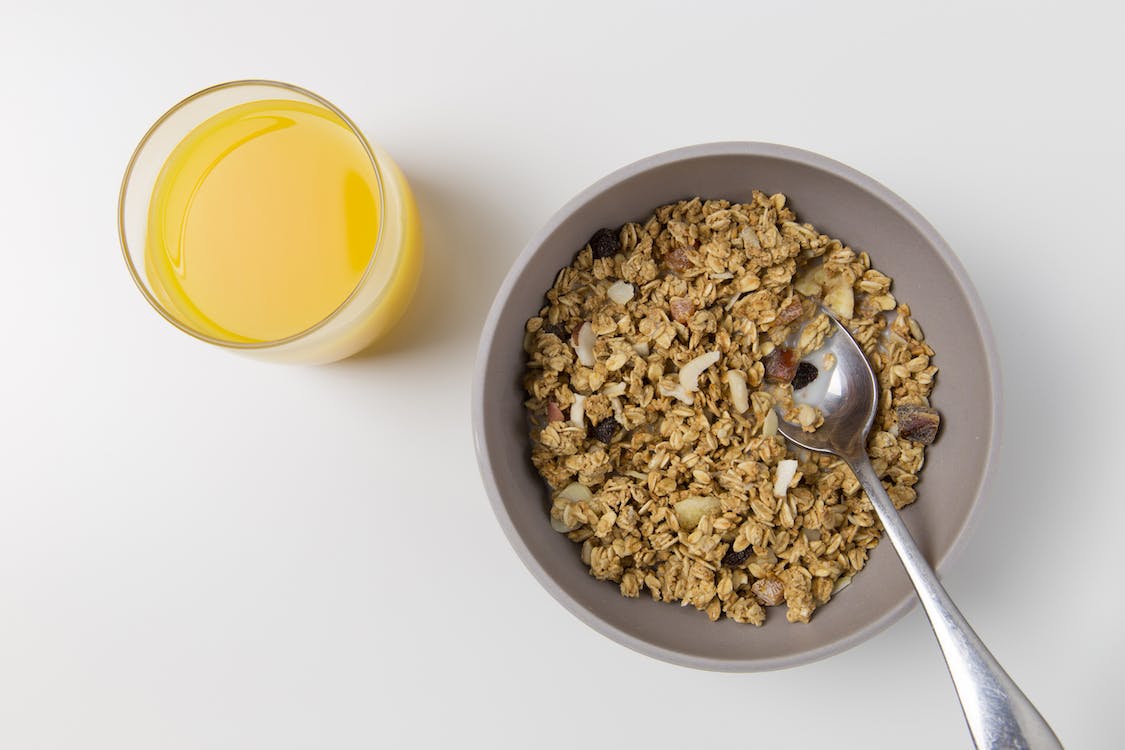
With the increasing incidence of cardiovascular disease, diabetes, bowel cancer, and constipation, people have begun to pay attention to cellulose.
随着心血管疾病、糖尿病、肠癌、便秘等发病率逐年上升,人们开始重视纤维素。
suí zhuó xīn xuè guǎn jí bìng, táng niào bìng, cháng ái, biàn mì děng fā bìng lǜ zhú nián shàng shēng, rén men kāi shǐ zhòng shì xiān wéi sù.
Cellulose cannot be digested and absorbed by the human body, so you can excrete as much as you eat. Why do we still need it?
纤维素不能被人体消化吸收,吃多少就排多少。哪为什么我们还要吃纤维素呢?
xiān wéi sù bù néng bèi rén tǐ xiāo huà xī shōu, chī duō shǎo jiù pái duō shǎo. nǎ wèi shén me wǒ men hái yào chī xiān wéi sù ne?
Because cellulose is like a “mop” in the human body, dragging out the dirt and toxins in the intestines.
因为纤维素好比人体内的一把“拖把”,将肠道里的脏东西和毒素拖裹出来。
yīn wèi xiān wéi sù hǎo bǐ rén tǐ nèi de yī bǎ “ tuō bǎ ”, jiāng cháng dào lǐ de zàng dōng xī hé dú sù tuō guǒ chū lái.
After the dirt and toxins are dragged out, there is no chance to “destroy” the normal structure of the human body, and you will be relatively healthy.
脏东西和毒素被拖裹出来后,就没有机会“破坏”人体正常结构了,你也就相对健康了。
zàng dōng xī hé dú sù bèi tuō guǒ chū lái hòu, jiù méi yǒu jī huì “ pò huài ” rén tǐ zhèng cháng jié gòu le, nǐ yě jiù xiāng duì jiàn kāng le.
Cellulose is divided into two categories: soluble cellulose and insoluble cellulose.
纤维素分为可溶性纤维素和不可溶性纤维素两大类。
xiān wéi sù fēn wéi kě róng xìng xiān wéi sù hé bù kě róng xìng xiān wéi sù liǎng dà lèi.
11 The Human Body is Made of Nutrients
人体由营养素做的
rén tǐ yóu yíng yǎng sù zuò de
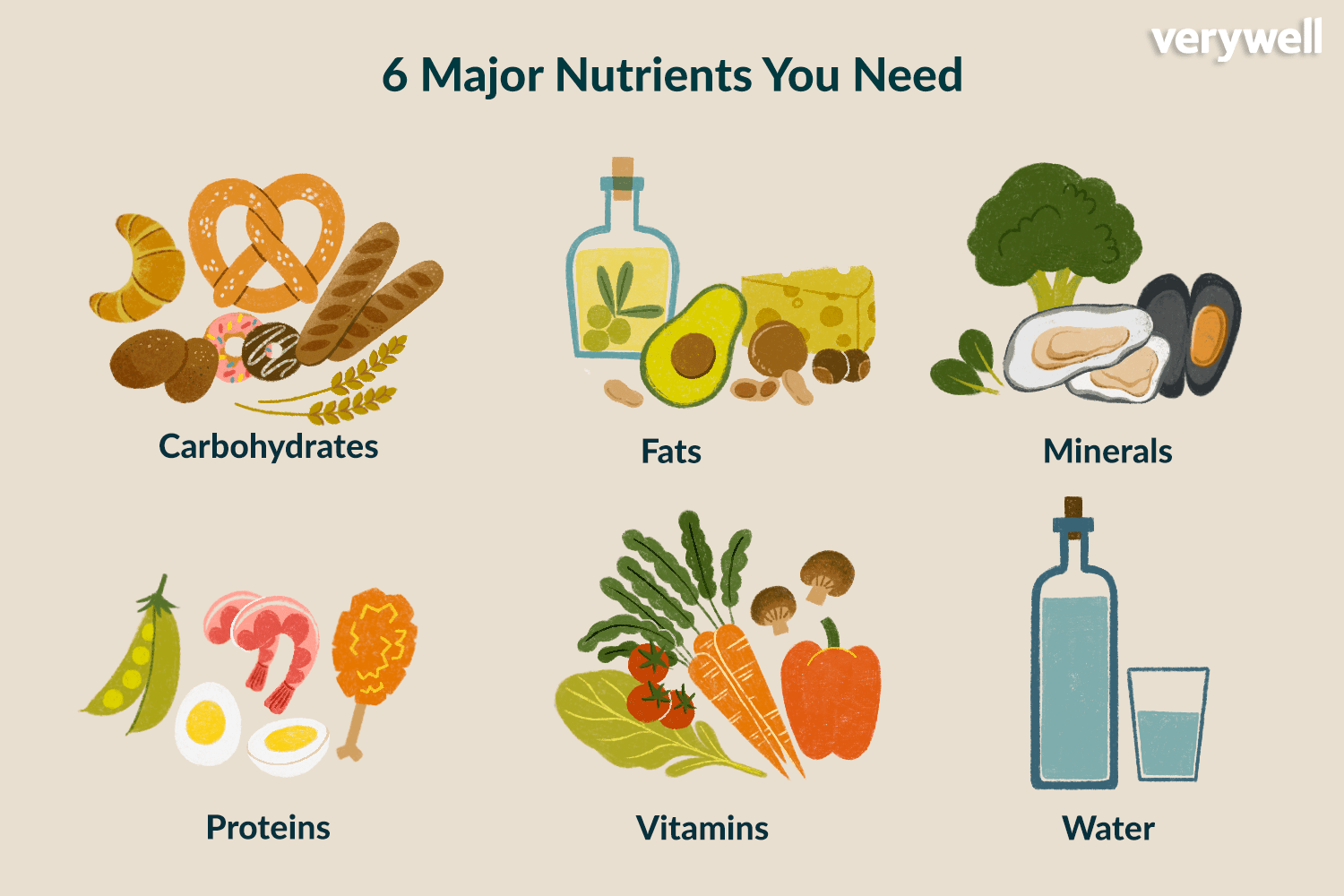
What are you made of? Let’s analyze it together.
你是由什么做的?我们一起分析一下。
nǐ shì yóu shén me zuò de? wǒ men yì qǐ fēn xī yī xià.
You are made of eight systems, namely digestive system, circulatory system, respiratory system, motion system, nerve system, urinary system, endocrine system and reproductive system.
你是由八大系统做的,分别是消化系统、循环系统、呼吸系统、运动系统、神经系统、泌尿系统、内分泌系统和生殖系统。
nǐ shì yóu bā dà xì tǒng zuò de, fēn bié shì xiāo huà xì tǒng, xún huán xì tǒng, hū xī xì tǒng, yùn dòng xì tǒng, shén jīng xì tǒng, mì niào xì tǒng, nèi fēn mì xì tǒng hé shēng zhí xì tǒng.
Every system is made of tissue. Tissue is made of cells. Cells are made of nutrients.
每个系统是由组织做的。组织是由细胞做的。细胞是由营养素做的。
měi gè xì tǒng shì yóu zǔ zhī zuò de. zǔ zhī shì yóu xì bāo zuò de. xì bāo shì yóu yíng yǎng sù zuò de.
So, all in all, you are made of nutrients.
所以,归根结底,你是由营养素做的。
suǒ yǐ, guī gēn jié dǐ, nǐ shì yóu yíng yǎng sù zuò de.
What to do if the car breaks down? Parts are used, of course, because cars are made of parts.
汽车坏了用什么修?当然是用零部件,因为汽车是由零部件做的。
qì chē huài le yòng shén me xiū? dāng rán shì yòng líng bù jiàn, yīn wèi qì chē shì yóu líng bù jiàn zuò de.
What do you use to rehabilitate when you are sick? With nutrients of course, because you are made of nutrients.
你“坏”了用什么“修”?当然是用营养素,因为你是由营养素做的。
nǐ “ huài ” le yòng shén me “ xiū ”? dāng rán shì yòng yíng yǎng sù, yīn wèi nǐ shì yóu yíng yǎng sù zuò de.
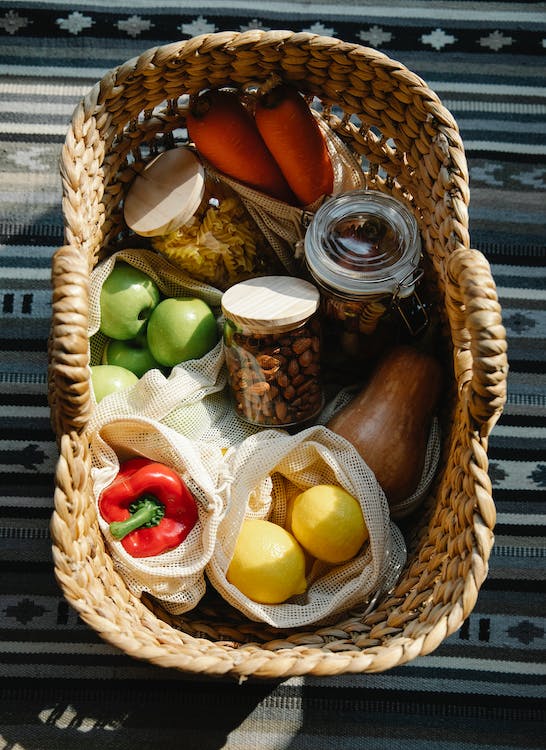
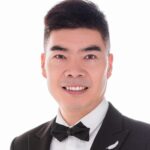
Hongtao Li
Author of “Heal Yourself rather than See a Doctor”
Founder of ChineseTutorLi.com
Graduated from Xi’an Medical University, majored in clinical medicine.
Ever worked in the Orthopedic Surgery Department of the Beijing Armed Police Corps Hospital for three years, and later abandoned medicals to pursue education.
Now engaged in education, teaching Chinese, spreading Chinese culture and popularizing revolutionary health concepts and knowledge to people all over the world.
李红涛
《看医生不如看自己》作者
ChineseTutorLi.com 创始人
毕业于西安医科大学,临床医学专业。
曾在北京武警总队医院骨外科工作三年,后来弃医从文。
现从事教育工作,向世界各地的人们教授中文、传播中国文化并普及革命性的健康观念和健康知识。
Lǐ Hóngtāo
“kàn yīshēng bùrú kàn zìjǐ” zuòzhě
ChineseTutorLi.Com chuàngshǐ rén
bìyè yú xī’ān yīkē dàxué, línchuáng yīxué zhuānyè.
Céng zài běijīng wǔjǐng zǒngduì yīyuàn gǔ wàikē gōngzuò sān nián, hòulái qì yī cóng wén.
Xiàn cóngshì jiàoyù gōngzuò, xiàng shìjiè gèdì de rénmen jiàoshòu zhōngwén, chuánbò zhōngguó wénhuà bìng pǔjí gémìng xìng de jiànkāng guānniàn hé jiànkāng zhīshì.
Leave a Reply